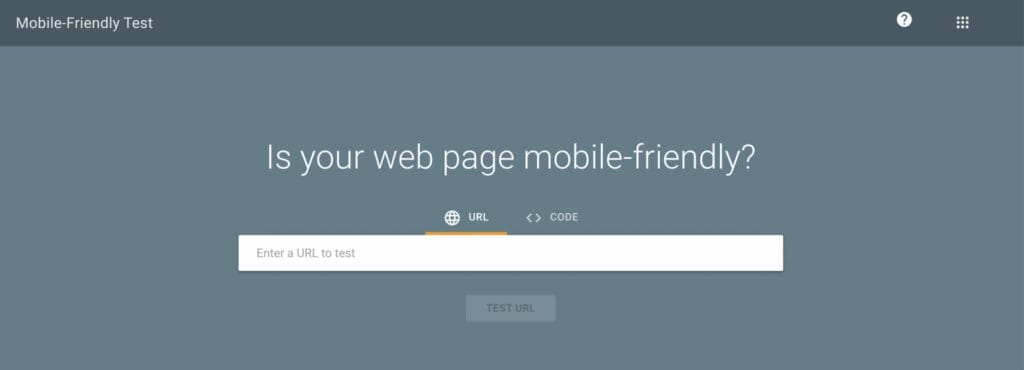Investing in SEO for Oncologists can help medical professionals like yourself organically reach the right patients who are actively searching for oncology doctors to help them find the right treatments and the best cancer care for them. Implementing SEO as part of your campaign will help you stand out from your local competitors, connect with your target audience, and build a strong online presence that will bring you more patient volume to your oncology practice.
Table of Contents
ToggleWhat is Search Engine Optimization?
Search Engine Optimization or SEO is the process of improving a website and its content to help it rank high on Google aka search engine results pages (SERPs). An effective SEO campaign will guarantee that your oncology website will show up at the top of search engine results pages when users actively look for oncology doctors or oncology services. It will also help drive more organic traffic to your site due to its increased visibility toward your target audience, and increasing the likelihood of your website visitors converting to patients.
1. How does SEO work?
SEO or search engine optimization works by implementing different strategies to help your site rank high on search engine results and determine the authority and importance of the page. These are the different strategies that work together to help your site rank organically:
On-page SEO strategies work by optimizing your web pages to rank higher on search engines. These will include the URL structure, the title tag, the meta description, relevant keywords, and internal and external links.
Off-page SEO strategies are about making efforts to your website from the outside. Some of these strategies will involve building backlinks, guest postings, content marketing, and more.
Technical SEO involves working on the technical aspects of your oncology website for search engines, such as crawling, indexing, keyword cannibalization, and making it mobile-friendly.
When the algorithm chooses pages most relevant to a user’s query, it ranks them by displaying the most authoritative or popular ones first. To rank high on search queries based on the algorithm, here are the following elements to consider:
- The meaning and intent behind someone’s query.
- The relevance between the search query and the content on a page is assessed through keywords.
- The quality of content should signal expertise, authority, and trustworthiness.
- The usability of a site, such as page speed, mobile friendliness, and other factors that make it discoverable.
- The Context. This will rely on the user’s past search behavior and settings like location.
1.1 Relevance and Authority of a Website
Use the E-E-A-T framework to ensure your site has quality content, which will help determine its relevance and authority on search engines.
- Expertise will signal that you are an expert on the topic.
- Experience will signal that you have personal experience in regard to the content you write about.
- Authoritativeness is when others use your site pages as sources signaling your site’s credibility and authority.
- Trustworthiness signals that your oncology website and its content are credible and up-to-date.
Do you want to optimize your website but don’t know how?
Get On A Call With Our Experts!
2. Why SEO for Oncologists?
SEO for Oncologists is the best strategy to implement in your online marketing campaign because it can improve your digital marketing ROI (Return On Investment), and it can decrease your advertising costs. With SEO you will also be able to promote your oncology practice every day and establish a strong online presence by improving visibility on SERPs, therefore increasing click-through rate and getting more new potential patients. This also means that you will be able to use SEO to help build your credibility for your oncologist practice because ranking on the first page on the search engine results page will indicate to users that search engines trust your oncology website and its content.
Let’s look at an example of what comes up on search engines when we search “oncology doctor near me Los Angeles”:




3. How do Search Engines Work?
Crawling
The crawling of a webpage refers to how easily search engines can discover the page. It involves the discovery process where search engine bots (or web crawlers) find new and updated content, and this could be a webpage, a PDF, images, videos, and other file types that are discoverable and accessible to bots through links. With crawling, you want to make sure that your pages show up on search engine results pages
Indexing
The next step after crawling is indexing, which involves the process of adding a webpage to an index. This means Google analyzes the page and its content, then adds it to a database of billions of pages like Google index. Without crawling and indexing your URL, the page will not be ranked or found by Google or other search engines, therefore it is imperative that you index your URL.
Ranking
After crawling and indexing, next is when search engines use algorithms to rank web pages, which will be based on the quality of the site’s content, user experience, and relevance. You will want to optimize your oncology website in alignment with these factors to help you rank better, and increase online visibility.
4. Local SEO
With SEO for your oncology website, you can further optimize your local SEO for your oncology site by targeting to appear at the top of local search results pages, for instance, “oncology doctor for chemotherapy los angeles”. This will also be advantageous for you if you are someone who owns a physical location for your oncology practice, or if your business serves a geographic area so that active users searching for oncology services within a specific area (for example, Los Angeles California) can find you, like in the example below:

Optimize Local SEO by focusing on the following ranking factors:
- Appearing only for searches with a local intent. For example, “oncologist doctor near me” or “chemotherapy in LA”
- Containing results specific to a relevant location.
- Reply to reviews using the right keywords.
- Delivering specific information to users so they won’t necessarily need to go elsewhere to find it.
- Targeting smartphone users for local searches since these search queries happen more often on mobile devices.
Want your oncology practice to be seen and noticed online?
Schedule A Free Strategy Session With Us!
5. On-Page SEO Strategies
5.1 URL Slugs
URL slugs are usually found at the last part of the URL address. They serve as unique identifiers of the page. For effective URL slugs, you want to use user-friendly URL slugs that also include the target or primary keyword about a specific page, for example:
- https://ccchclinic.com/about-us/
- https://ccchclinic.com/services/oncologist-los-angeles-clinic/
These examples use a URL slug that provides a clear indication of the content of the website. The first example uses “about-us” as the URL slug, which gives the user an indication that they can learn more about the oncology practice, its foundation, its vision, and its mission for its patients.
The second example has a longer and more detailed URL slug of “services/oncologists-los-angeles-clinic”. This URL slug uses the target keywords “oncologists Los Angeles” and it provides a very concise description of what the page is about, which encourages a user to click on the link.
Optimize URL Slugs for SEO:
- Be descriptive (describe the content of the page using your target keyword)
- Make it user-friendly and avoid keyword stuffing
- Make it concise and easy to read (try to use less than 5 words in your URL slug)
- Use hyphens, not underscores
- Don’t use URL slugs that already belong to other pages
- Avoid special characters
- Use lowercase characters (they can be case-sensitive so keeping them lowercase avoids any issues)
- Avoid using numbers that may change in the future, such as the publishing date
5.2 Meta Descriptions and Title Tags
An HTML tag that has a brief summary of the web page is recognized as the meta description. These are usually unique, descriptive, and relevant to the page which helps a user have an idea of the content of a page and how it’s relevant to their search query. An effective meta description tag will convince users to click on a website’s link on SERPs and increase CTR (Click-through rate).

An HTML element that also works as part of on-page SEO is title tags. They can be seen in the browser and in search results.
A title tag is an HTML element that sets a web page’s title, which can be seen in the browser and search results. A well-optimized SEO title tag will be able to balance the search needs of search engines and users, to make it exciting to read and helpful for keyword rankings.

A well-optimized SEO title tag can balance the search needs of search engines and users, making it exciting and helpful to read for the user, which as a result, also helps in keyword rankings.

Optimize Meta Descriptions for SEO for Oncologists
- Keep meta descriptions between 155 to 160 characters
- Include the primary target keyword
- Satisfy the user’s search query (Understand the search intent for an effective meta description)
Optimize Title Tags for SEO for Oncologists
- Keep title tag length between 50 to 60 characters
- Avoid keyword stuffing
- Target one primary keyword
- Make your title tags unique on your website and on the SERP
- Make sure the <title> element is present in your page’s HTML
- Accurately describes your page
5.3 Internal and External Links
Internal Links are the hyperlinks or relevant pages found on your oncology website that provide additional relevant and useful information.
Best Practices for Internal Links:
- Use plenty of internal links throughout your oncology website.
- Link high authority and quality, relevant pages. These will improve your ranking and the user’s experience.
- Avoid phrases like “click here” and replace them with anchor texts.
- Include at least 3 to 5 internal links
External Links are also hyperlinks, but these are outbound links, or relevant pages found outside of your oncology website that point a reader to a different domain. External links can be used to help search engines and users have a better understanding of your website’s topic and boost the ranking and reputation of the site when authoritative and relevant sources are used.
Best Practices for External Links:
- Link to relevant sources to add value to your page and to your readers.
- Use external links from credible and professional sources.
- Don’t link your competitor’s website.
- Use keyword anchor texts.
- Make sure that your external links open to a new tab.
5.4 Alt Tags
Alt tags are used to describe the appearance or purpose of an image used on a page. These are also known as alternative text, alt attributes, and alt descriptions. They add additional context to the images used on blog posts to help screen reading tools describe the images to visually impaired readers, and they also allow search engines to crawl and rank a website.
You want to make sure that your alt tags describe the image or infographics on your page as accurately as possible so that bots and users can understand the content of your site. To support SEO optimization for your alt tags, practice the following tips:
Best practices for alt tags:
- The description should be relevant to the topic discussed in the blog post
- Use up to 125 characters or less.
- Keep it relatively short and avoid keyword stuffing
- Include primary keywords
- Don’t include “image of” or “picture of”
- Avoid copying the image caption
Apart from alt tags, you also want to optimize your headings to help boost the rank of your posts, by using relevant headings to increase the chance of your page showing up on Google’s featured snippets. Showing up on Google’s search results page with effective featured snippets can help increase your CTC (Click-through rate) and can also help in better understanding the interests of your target audience.
How to rank on Google’s Featured Snippets:
- Well written content
- Understand searcher intent
- Create and update content outline
- Content should match the user’s search intent
- Include relevant infographics and organized lists
5.5 Update Old Blog Posts
Optimizing your on-page SEO also involves updating old blog posts you may have on your oncology website. If you have many old blog posts, updating these will help your oncology site rank higher on relevant searches, it will maximize the reach and engagement of your posts, and overall support your SEO efforts.
How to update old blog posts?
- Check for outdated features or trends that are not applicable in the present time
- Check all links on your blog posts (both internal and external). Some could redirect website visitors to deadlines or broken links due to a change of domain.
- Promote your blog post using other formats, for instance, infographics.
- Share them on social media platforms like Pinterest
5.6 Keyword Research
Keyword research should be an essential step as you implement your SEO for oncology campaign. Having an understanding of what keywords will work for your oncology campaign, which keywords are high intent, and which keywords your target audience most commonly and actively searches for in search engines will be key to your SEO journey being effective and successful.
When choosing your keywords, consider the following factors to help with your keyword research for your SEO optimization.
- Monthly search volume
- Keyword difficulty
- Relevance to your business
- Search intent
Understanding Search Intent:
Another element to support your keyword research is understanding the search intent of a user which can be categorized into one of the following:
- Informational intent: This is when a user wants to learn more information about something. Searches with informational intent will usually be phrased questions with key terms using “how”, “why”, “tips” and “solution”.
- Navigational intent: This is when a user is actively looking for a specific page. This type of search intent usually indicates that the user or searcher already knows what they’re searching for, for example, “oncology specialist for chemotherapy” or “radiation oncology”.
- Commercial intent: This type of search intent will include keywords that a user has previously used to research before making a purchase. Commercial intent can also look like a search for a service provided by your oncology practice and feedback from previous patients, like “immunotherapy near me x reviews”
- Transactional intent: This type of search intent is used by users who already know what they want, and want to find something specific like “oncology clinic bone marrow transplant” or “surgical oncology”, with the intent to make a purchase, or even sign up for a newsletter.
5.7 Keyword Tools for Keyword Research
Browser Extensions
Use browser extensions as one of your keyword research tools to help you save time on keyword research and support your SEO efforts.
Keywords Everywhere is a browser extension that doesn’t require you to log in to any SEO tool online. It offers a “freemium” plan that will provide you with data on volume searches, cost per click, relevant keywords, and even long-tail keywords.

Whatsmyserp (previously known as WMS Everywhere) is another browser extension that also offers analytics on volume searches and cost per click for search terms and a collection of related search terms. In addition, it also offers a free SERP checker tool. The difference with this browser is that you will need to sign up and create an account to use this tool.

Google Autocomplete Predictions
Google autocomplete predictions is a feature within Google’s search engine that uses an automated system to generate predictions. These will usually be relevant queries that come from real and trending searches based on your location.

Google Related Search Results
Google related search results use Google’s algorithm to generate SEO-related searches that help you get a better understanding of what the search intent is from your target audience.

Google Keyword Planner
Google’s Keyword Planner is another free tool you can use to help with your keyword research, especially when creating search campaigns on Google. It will help you discover new keywords by entering key terms like “oncology near me”, which will then provide you with keyword forecasts, the competition level of specific keywords, and data on top of page bids to better understand how high intent the keyword is.


Need help with on-page optimization for your oncology site?
6. Off-Page SEO Strategies
6.1 Guest Posting
Guest posting or guest blogging is a very effective tactic for link-building. Link-building involves the process of getting other websites to link to pages on your oncology website, and it is a key element in guest posting because it helps boost the authority of your oncology page on Google so that your pages can rank higher and drive more traffic. This tactic can also help you get high-quality backlinks, contributing to signaling search engines that you are an industry expert.
For guest posting opportunities, use keywords such as “write for us + oncology”. Search results will provide you with websites accepting guest posts for that specific topic, along with specific guidelines you will need to follow.
Tips for writing guest posts:
- Follow guest post guidelines, such as requirements and terms and conditions
- Align with their style of writing
- Include internal links from their website
- Proofread for grammar and spelling mistakes before publishing
- Work on your author’s bio (mention something about yourself like what you do, and social channels where they can reach you)
6.2 Content Marketing
Content marketing is essential for your SEO digital marketing strategy. Content marketing also helps nurture and convert leads therefore you will need to produce specific content for your target audience that is enjoyable to read, and provides a solution for the reader, such as a blog post on the benefits of oncology for breast cancer.
You may also want to consider the 4 stages of the content marketing funnel to help visualize the journey of your potential clients. Each stage serves a specific purpose in the customer’s journey, as should the content presented to the customer in those stages.
- Awareness – The content is focused on educating your target audience.
- Evaluation – The potential clients will determine whether they need your product or service.
- Conversion – They will consider the reasons to buy your product or service.
- Delight – The content should keep your target audience engaged.
Overall, a content marketing funnel is a tool that will help cater to your target audience with educational and informative data that will help your potential client decide which of your oncology services and treatments will help meet their target wants and needs.
Content marketing is also referred to as a strategic marketing strategy which focuses on attracting and retaining your target audience, to drive profitable customer action. This is why it is important to include it as part of your off-page SEO efforts. Use different channels to distribute your content to help boost off-page signals, such as the following:
- Podcasts
- Newsletter
- Email Marketing
- Ebooks
- Press Releases
- Social Media
- Video Marketing
- Influencer Marketing
- Content Syndication
- Forums
6.3 Social Media Marketing
Social media marketing is one of the most effective off-page optimization strategies that can improve your site ranking. Using this strategy will involve engaging with your target audience on social media platforms, for instance, Facebook, LinkedIn, Instagram, TikTok, and Pinterest.
Social media marketing can also help increase organic clicks, establish authority, drive on-site engagement, improve local ranking, gather insights from social media metrics, and generate backlinks.
Best practices for social media marketing:
- Identify your target goals
- Plan your content for the month
- Use a content calendar tool. This helps you stay organized and on track with postings
- Use social media marketing tools to create visual and engaging posts
- Publish authentic and relevant posts that create an emotional or personal response from your target audience
- Collaborate with influencers to promote your oncology clinic (effective if your target goal is to improve brand awareness)
- Share customer feedback (this can help convince new potential customers to trust your oncology practice)
- Share on social media groups like Facebook groups and LinkedIn groups that are relevant to your niche or industry
6.4 Video Marketing
As the digital landscape continues to advance, video marketing should be an off-page SEO strategy you may want to implement for your oncology practice. Around 100 million internet users watch videos online every day and the total time spent watching videos keeps increasing as years go by, hence why many businesses are now incorporating videos when promoting their products and services to increase their reach, grab the attention of their target audience and find potential new clients. Incorporating video marketing as part of your SEO campaign will also add great value to the reading experience of your website visitor.
With this marketing strategy, it’s important to consider that there are elements that may be time-consuming, such as preproduction, production shoots, and post-production. This is why you will need prior research and planning before posting your videos for your oncology practice. Consider what your competitors are doing, what hashtags and keywords to include, the video length of your videos, current trends in promotional videos, and more.
Best practices for video marketing:
- Set goals for your video marketing
- Decide which platforms you will use
- Plan content production
- Schedule and promote videos
- Understand and analyze metrics
Best tips for video marketing:
- The first 3 seconds should hook the attention of your target audience
- Make your videos feel personal
- Have target keywords in your video, video captions, and video title
- Use a content calendar tool
- Consider both vertical and horizontal format videos
- Include a clear CTA (Call to Action) in all videos
- Add video testimonials
- Keep it short but engaging and interesting
- Make sure the video can provide the solution to a problem (e.g. benefits of chemotherapy at your oncology clinic)
6.5 Online Forums
Another off-page optimization strategy you can implement as part of your SEO campaign for your oncology site is participating in online forums like Reddit, Quora, and LinkedIn groups. Online communities will help boost your off-page SEO by making your oncology site more popular and improving your rank on SERP. Joining relevant online discussions is a perfect opportunity to establish your expertise in your niche and industry, and linking relevant blog posts from your oncology site will help support and explain your answers. These will also help build your authority, resulting in more backlinks, site traffic, and more new clients.
Consider these factors when joining online forum discussions:
- Follow the platform policies
- Only add links from your website that are relevant to the topic being discussed
- Don’t spam the comment section just to get more links. This could make you lose credibility and ruin your reputation
- Don’t add links in every single answer you provide
- Provide accurate answers
7. Technical SEO Strategies for Your Oncology Website
As mentioned earlier in this article, technical SEO is about working on the technical aspects of your oncology website. Technical SEO strategies are critical to ensure there are no technical issues on your site that may prevent it from ranking on search engines and to avoid potential clients clicking on your site but leaving without taking a conversion action due to technical errors. Technical SEO for oncologists is also essential to attract organic traffic that will convert to potential clients for your oncology practice.
Optimize your Oncology Website
SEO for oncologists requires technical SEO optimization to ensure effective crawling, indexing, and ranking, therefore you want to start by first making sure your site is secure.
7.1 Secure your site
Securing your oncology website is one way to optimize technical SEO. Having a secure website will allow you to earn the trust of your potential clients. Without a secure site, you risk your client’s personal information getting stolen by hackers and as a result, driving website visitors and potential clients away. A secure site should also have a “secure encrypted connection” sign, to avoid ranking lower on SERP since website security is one of Google’s ranking signals.
One way to secure your oncology website is by using HTTPS. This is a secure version of HTTP, and using HTTPS will help you protect sensitive user information from being compromised such as passwords and credit card details. Other factors to consider for securing your site are the following:
- Choose a reliable hosting provider
- Schedule regular website backups
- Update your website to the latest version
- Install an SSL certificate to authenticate the identity of your site and to establish a secure connection when users access it
7.2 Page Speed
Another technical SEO strategy you want to implement in your SEO for oncology campaign is page speed. It is one of the factors that affect your ranking, therefore you want to make sure that your website loads as fast as possible both on mobile devices and on desktop. Page speed will usually be scored from 0 to 100, so aim to score a high number, because this signals to search engines that your page speed is fast.
Some of the technical SEO strategies to consider and improve your page speed involve compressing your images, minimizing the use of javascript files to improve the loading time of the page, and using a content distribution network (CDN) so requested files require less distance to travel by using the nearest server.
7.3 Single Website Version
Make sure you only have one version accessible of your oncology website, and avoid having more than one like the example below:
- https://www.bhcancercenter.com/
- https://bhcancercenter.com/
Having more than one accessible version of your oncology website to users can create duplicate content issues and reduce the effectiveness of your backlink profile. This can also negatively affect your website’s performance on Google so it’s important that only one website version is accessible.
7.4 Mobile Friendly Website
As we mentioned earlier, a factor that affects your SEO ranking is page speed for both mobile and desktop versions. This means that your oncology website needs to also be mobile-friendly because Google uses mobile-first indexing. It involves looking at the mobile version of your oncology website to index, rank content, and see how compatible it is with mobile devices.
You can use tools like Mobile-Friendly Test on Google Search Console to check if your oncology site is mobile-friendly.
7.5 Duplicate Content
Duplicate content on your oncology website is something you want to avoid. To help with your technical SEO efforts, find and fix duplicate content issues on your site. This can happen when you have the same content on different pages of your oncology website, and you want to avoid this because it can cause problems and negatively affect your SEO efforts, such as backing dilution and wasted crawl budget. Having duplicates on your site will also make it hard for search engine crawlers (or bots) to decide which page should rank high, which in turn affects your rank on search engine results pages.
To find and fix duplicate content from your oncology website, you can use tools like Semrush. Using tools like Semrush will also give you real-time performance reports to identify your rank on search engines like Google, Yahoo, Bing, and YouTube.
7.6 Broken links
Apart from duplicate content, you will also need to find and fix potential broken links. These can happen when pages from your site are no longer accessible by the website visitor or user. You want to remove broken links since they can affect the user experience, and encourage users or website visitors to leave your oncology site without performing an action of conversion.
There are a few possible reasons why your oncology clinic might experience broken links, and these could be due to changing the URL of a page on your site, a page on your website has been removed, or you could have simply forgotten to redirect the old URLs to their new domains.
To find and fix broken links on your oncology website, you can use tools like Google Search Console or Ahrefs’ Broken Link Checker, which can also help track your website’s ranking and performance on Google’s search results page.
7.7 Keyword cannibalization
Keyword cannibalization can happen when too many pages on your oncology website have identical or similar keywords used throughout the content on your website. Keyword cannibalization can affect your rank since web crawlers will have a hard time prioritizing which page should rank higher, therefore you will want to fix this to avoid potential website traffic loss and a lower ranking on SERP.
How to fix keyword cannibalization:
- Use a spreadsheet to organize all the URLs and target keywords from your oncology site.
- Reduce the number of times the keyword is used or remove if it possible.
- Improve the content of your pages with better quality.
- Check if any pages cannibalize each other and why.
In this article, we shared our insights from running over 1,000 successful SEO campaigns at Yoyofumedia and discussed the best practices you can implement to manage your own successful SEO for oncology campaign. If you want faster results, read how Google Ads for Oncologists can also help you. To learn more about our successful SEO case studies, visit Yoyofumedia’s page.
Don’t have the time to work on off-page and technical SEO strategies? We make it easy for our clients.
8. Key Takeaways
Investing in SEO for Oncologists is one of the most effective strategies to help you organically rank high on search engine results pages. With more potential clients relying on search engines to search for oncology services and treatments, it will help establish a stronger online presence by increasing brand visibility, and you will be able to attract the right clients for your practice. With effective implementation of SEO strategies, you will also be able to have a competitive advantage over your local competitors, and although it’s a continuous long-term process, the results from ranking #1 on Google’s SERP and gaining new clients will make it worth it.
Schedule your free strategy session now and get started on your SEO journey to experience your ROI growing exponentially once your campaign gains traction, and organically gain more new clients for your oncology practice!







